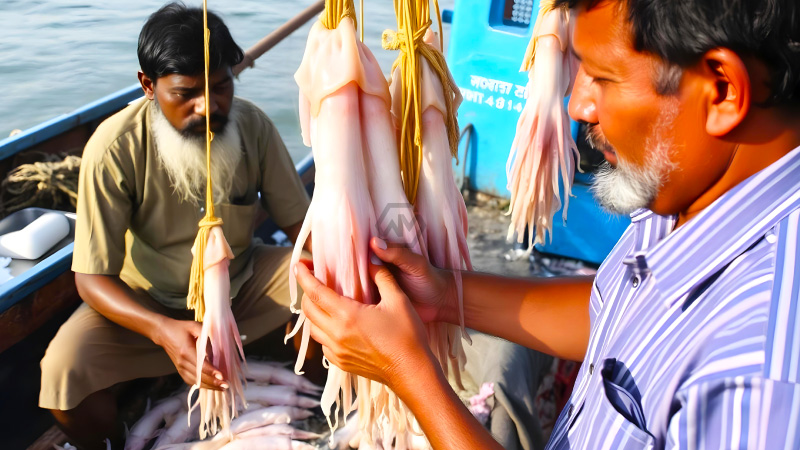- Fishermen in Olaikaadu Beach face reduced squid catches due to changing ocean conditions.
- Traditional fishing methods using thermocol rafts are increasingly unproductive.
- The drop in squid availability has significantly impacted local economic stability.
In Olaikaadu Beach, Rameswaram, local fishermen are experiencing a severe decline in squid catches, which has significantly affected their income.
Historically, these fishermen used thermocol rafts to catch squid, a practice that has been central to their way of life.
Rameswaram Fishermen Struggle as Squid Stocks Decline
The change in squid availability is a major concern for the community, as fishing remains the primary occupation for many residents. Despite evolving fishing techniques and equipment—from wooden rafts to thermocol floats—the traditional methods are struggling to cope with the altered marine environment. This decline not only threatens individual livelihoods but also jeopardizes the economic stability of the region.
Environmental changes, including altered wind speeds and shifting ocean conditions, are believed to be the primary factors behind the reduced availability of squids. Fishermen, who once brought in 10-15 kgs of squid per person, now report catches of just 1-2 kgs. This drastic reduction has raised alarms about the sustainability of their fishing practices.
The evolution of fishing techniques from wooden rafts to more modern methods, like thermocol floats, reflects the adaptability of local fishermen. Yet, despite these advancements, the ongoing environmental challenges are proving difficult to overcome. The traditional fishing techniques, deeply embedded in the local culture, are increasingly ineffective in the face of these changes.
The community’s reliance on fishing for their livelihood makes the current situation even more dire. With a decreasing squid population and the adverse impact on their income, there is an urgent need for solutions to address the environmental issues and support the fishermen in adapting to the changing conditions.
The decline in squid stocks is a critical issue for the fishermen of Rameswaram, threatening both their traditional practices and their economic well-being. Addressing the underlying environmental changes and exploring new strategies for sustainable fishing are essential steps to securing the future of this vital community.
“Earlier we used to catch around 10 to 15 kgs of squid per person, but now the numbers have significantly decreased to 1 to 2 kgs per person.”



